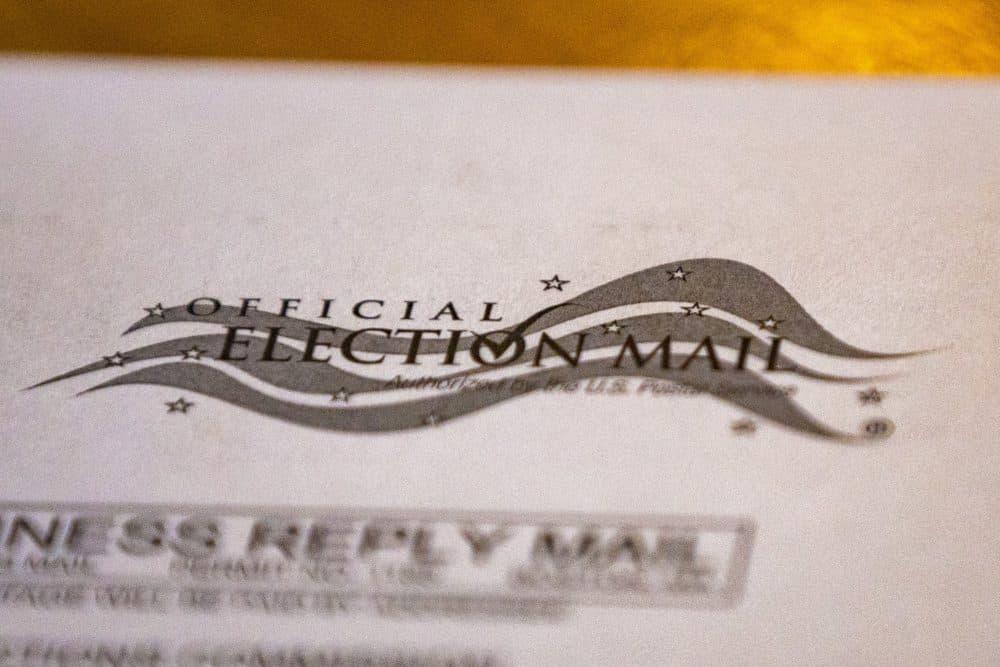Advertisement
More Than 2 Dozen Proposed Ballot Questions Filed With AG

Massachusetts voters next year could be asked to weigh in on more than two dozen proposed ballot questions submitted to the state attorney general's office Wednesday, although if history is any guide only a handful will likely make it through the laborious signature-gathering process needed to secure a spot on the ballot.
The proposals range from questions related to protecting whales and bringing back “happy hours” to a measure that would require voters to produce IDs at polling locations.
Among the proposed questions are ones that would pave the way for the legal sale of consumer fireworks in Massachusetts, mandate all voting in the state be hand-counted, and require that if a child is born alive all reasonable medical steps must be taken to preserve its life.
Other proposed questions would ban smoking in multi-family housing units, make it a felony to target an individual's ability to make a living due to postings on social media, and limit the number of licenses to sell alcohol that any one company or individual can be granted.
Three proposed questions have been filed by Massachusetts Nurses Association Executive Director Julie Pinkham including one that would ban hospital CEOs from working with medical device or pharmaceutical companies.
A proposed ballot question submitted by the conservative Massachusetts Fiscal Alliance would roll back the Transportation and Climate Initiative, a pact signed in 2020 by the governors of three New England states — Massachusetts, Connecticut and Rhode Island — and the mayor of Washington, D.C., aimed at reducing transportation pollution.
Another question would bar elementary and high school educators from teaching American history “with the specific intent of making any such students feel personally responsible, at fault or liable, either individually or as a member of a racial or ethnic group, for the actions or omissions of others.”
Other proposed questions would target conflicts of interests by government officers and candidates, another would take steps to help protect whales and sea turtles while another seeks to guarantee that access to gasoline, diesel fuel, and other motor fuels isn't restricted by taxes.
Yet another would allow for the return of “happy hour."
One of the most closely watched questions is the so-called “millionaire tax." In June, state lawmakers voted to put the proposed constitutional amendment before voters next year.
Supporters say the proposed 4% surtax on the portion of an individual’s annual income that exceeds $1 million would generate about $2 billion in annual revenue to be used for education and transportation. Opponents say the measure will cost jobs and push some of Massachusetts’ wealthiest citizens to flee the state.
The state’s constitution currently requires all income be taxed at uniform rates.
Massachusetts Republicans are hoping to get a ballot question before voters next year that would require residents to produce an ID to vote. The push is being led by state Republican Party Chair Jim Lyons.
“The integrity of our elections is under attack all over the country,” Lyons said in a July 4 email to supporters. “Massachusetts should require voters to present identification in order to prove their identity at the ballot box.”
Another proposed question is being backed by a coalition of app-based businesses including Uber, Lyft, DoorDash and Instacart.
Supporters say the question would grant new benefits for workers like health care stipends, paid sick time and paid family and medical leave and occupational accident insurance while stopping short of declaring them employees.
Critics, including labor unions, said the measure would create a “second class” status for drivers, delivery workers, and other app-based workers while allowing the companies to avoid contributing to Social Security.
Democratic Attorney General Maura Healey is currently pushing forward with a lawsuit that would recognize Uber and Lyft drivers as employees under the state’s wage and hour laws.
Wednesday is the deadline for groups hoping to get a question on the 2022 ballot to submit the language of the question to Healey’s office. It’s up to her office to decide if a question passes constitutional muster.
Of the 30 petitions filed Wednesday, 28 are proposed laws for the 2022 ballot and two are constitutional amendments for the 2024 ballot, according to Healey’s office. The two proposed constitutional amendments do not include the millionaire tax proposal, which was going through a separate legislative process to get on the ballot in 2022.
Healey said her personal policy views or the personal views of any members of her office play no role in the certification decisions.
Once a question gets the green light from Healey’s office — typically by the first Wednesday in September — supporters need to file the question with the secretary of the commonwealth’s office and then begin the process of collecting more than 80,000 voter signatures.
The certified signatures must be filed with the secretary of the commonwealth’s office by the first Wednesday in December.
The question is then sent to state lawmakers. If the Legislature opts not to approve the question, supporters must then collect more than 13,000 additional signatures to guarantee a spot on the November ballot next year.